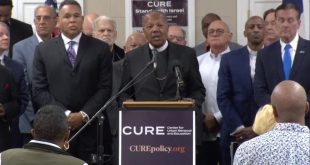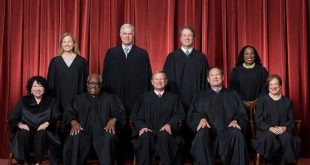Courthouse News Services reported that a three-judge panel of the U.S. Court of Appeals for the Fourth Circuit this week heard “heated arguments” in a case over the school’s bias reporting system.
Speech First, an organization dedicated to protecting free speech on college campuses, brought a lawsuit against the Blacksburg, Virginia, university in 2021, seeking to block enforcement of two policies.
The first is the bias response procedure, which allows students to anonymously report other students they believe are participating in biased actions to a group of Virginia Tech officials, who can then ask the student or students to voluntarily meet with them to talk about why their views may be problematic.
Speech First lost in lower court and appealed to the Fourth Circuit.
An example of a “bias” report: someone told a joke using Caitlyn Jenner’s “deadname” of Bruce Jenner, which was his name before he changed it and pretended to be a woman. That is not an actionable offense. Joke or not, a school has no enforcement power to penalize a student for speech other students don’t like. Another example: Virginia Tech requires groups to get approval from officials before setting up tables on campus or demonstrating. This gives the school officials the power to discriminate based on viewpoint.
During arguments, the plaintiffs’ lawyer asked Virginia Tech’s lawyer why advertisers don’t have to ask for approval to set up on campus but students do. The lawyer claimed that the school doesn’t review the students’ content.
One of the judges asked the school’s lawyer whether America’s founders would have wanted citizens to ask the government’s permission to speak. Virginia Tech’s lawyer reiterated that the school doesn’t review content.
“Through this elaborate disciplinary apparatus, administrators at Virginia Tech have intimidated students into silence, refraining altogether from expressing comments or viewpoints that might be perceived as controversial or offensive,” Speech First president and founder Nicole Neily said (PDF). “This effort to restrict (and even punish) speech based on content goes against the commitment to academic discourse that is supposed to be paramount in higher education.”
Loudoun County Public Schools has a similar policy in place. Parents filed a lawsuit last year against the school board over a policy that allows students to inform on other students for saying or doing things they consider “racist.”
Under the “Student Equity Ambassador Program” and “Bias Reporting System,” a selected group of students meet with administrators and report incidents they perceive as racist. All students can anonymously inform on other students. The parents alleged that only “students of color” and “allies” may participate in the Student Equity Ambassador Program. Obviously, these programs can have a chilling effect on speech.
A federal court in January dismissed the parents’ lawsuit, but the parents have appealed.
Photo credit: Mike McBride (Creative Commons) – Some rights reserved
Do you like this post? Sign up for more!
 CURE News and Clergy Blog News and Commentary for Christians
CURE News and Clergy Blog News and Commentary for Christians



